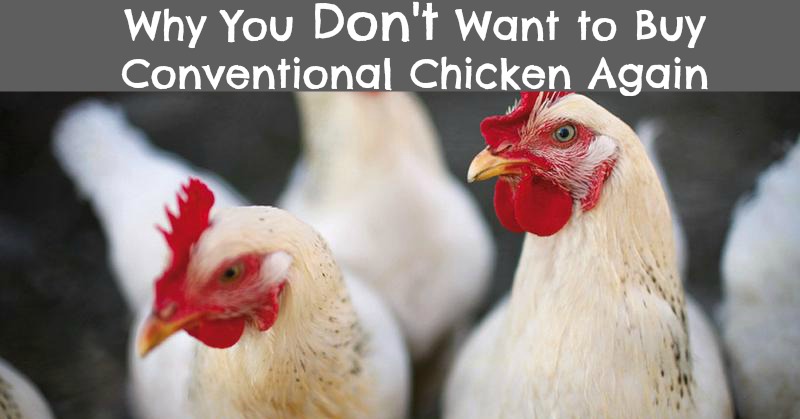
As consumers and health conscious eaters we face many choices when it comes to food. By now we know the importance of buying organic produce, grass fed meat, and wild caught sea food. It is no different when it comes to chicken – it is important to buy organic pastured chicken! If you just look at the back of all natural chicken and compare it to organic, you will see that the only difference may be the word “organic”. Thus, one might think that the one word difference is not worth the extra money. But I’m not so sure!
Organic Chicken Benefits
First of all, products from organic origin must comply with specific standards and requirements.
Farmers who grow organic chickens are prohibited from using waste-water sludge for fertilizers, synthetic chemical additives or GMO products – any animals, plants and micro-organisms, subject to modification by gene technology. However, chicken with just the label “natural product” does not always meet these requirements.
Folks, This Ain’t Normal: A Farmer’s Advice for Happier Hens, Healthier People, and a Better World
Consumption of organic products does not allow the spread of bacteria that are resistant to antibiotics.
By placing chickens in a closed space, as is usually done by corporate farms, increases the risk of infectious bacteria. This is the reason that non-organic chicken is stuffed with antibiotics. This leads to the formation of microorganisms resistant to antibiotics.
Multiple studies have proven that organic pastured chicken contains 38% more omega-3 fatty acids (which are beneficial for the heart).
Organic products also reduce the risk of poisoning: less than 6% of organic chickens are infected with Salmonella, in contrast to 39% of conventional chickens.
Conventional chickens contain a special injection of water, salt and preservatives to add moisture and improve the taste.
As a result, the chickens have a higher level of sodium.
Animal researchers in the Netherlands have discovered that “organically fed chickens develop a different process of gene expression in their small intestines than that of chickens which get conventional feed”. The study compared two groups of chickens in which one received organic feed and the other conventional. The end result showed major differences in gene expression among 49 genes where 7 of the genes were involved in helping the chickens synthesize cholesterol, when just 30 genes are involved in the process. It came as a surprise that such a small variant in the cultivation method can bring such big changes.
Additionally, you have to look for the word pastured when it comes to chicken because if it is just organic it doesn’t mean that the chicken has an access to a pasture. A pastured chicken is allowed to grassland and eat nutritious plants, seeds, worms, and bugs. Chickens will consume up to 30% of their nutritious calories in grass. The quality of their feed transfers into their nutritional content. Pastured chickens have a higher vitamin and omega-3 fatty acid content. Conversely, according to several studies, pastured eggs have more omega-3 and Vitamin E compared to conventional, caged eggs.
Thus, the importance of buying organic pastured chicken is clear.
Folks, This Ain’t Normal: A Farmer’s Advice for Happier Hens, Healthier People, and a Better World
We can raise organic chicken in a cage like conventional way as non organic but with out using any vaccines, antibiotics and any chemicals except for what is newly discovered organic solution. The result is superb…If you guys are interested please feel free to let me know thru my e mail ..thanks
Hi, we shared the same opinion.